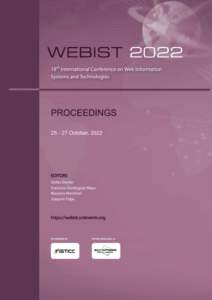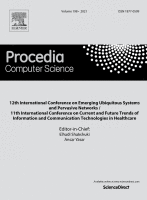
Towards a Pattern-based Approach for Transforming Legacy COBOL Applications Into RESTful Web Services
Many aspects of modern life still depend on large-scale, monolithic legacy applications, e.g. in financial services, transport or public administration. Typically, these applications are written in ancient programming languages such as COBOL and use proprietary transaction processing monitors like CICS. While the modernization or replacement of these legacy application has been discusses in literature and practice for decades, still no universal solution exists. In many cases, an evolutionary modernization strategy has shown to be successful in practice, allowing to modernize the software architecture as well, not only the program code. Therefore, in this paper an analysis pattern is derived for transforming stateful, transactional COBOL programs into stateless RESTful web services. This pattern is evaluated by analyzing and transforming an example COBOL application to Java. While the approach shows to be useful in case of the example application, it needs to be further investigated in a broader range of real-world scenarios.
Making Java EE Cool Again: Building MongoDB-Based Web Services Using JPA and EJB
Despite its dominating role for developing large-scale enterprise applications, Java Enterprise Edition (EE) has always been seen critically by many developers, in particular from the web and open source communities. In recent years, the discussion about its decline and replacement e.g. by scripting languages such as Python or JavaScript has therefore gained momentum. On the other hand, Java EE has evolved towards being more flexible, lightweight and simpler to use and offers unique features still not available out-of-the-box on other platforms, such as support for distributed transactions. Therefore, in this paper an approach is presented, how a Java EE-based application supporting elderly people could be designed to make use of a modern NoSQL database (namely MongoDB), while preserving its unique features. The presented approach demonstrates not only the feasibility of such an architecture, but also supports the claim that Java EE still is a highly relevant and powerful platform for building modern applications.


Do We Really Need Another Blockchain Framework? A Case for a Legacy-friendly Distributed Ledger Implementation based on Java EE Web Technologies
Cryptocurrencies, blockchain technology and smart contracts could fundamentally change the way how financial products and financial services are implemented and operated. While many frameworks for implementing such blockchain applications already exist, these are usually implemented using languages either considered “fancy” today, like e.g. Go, or are traditionally used for system software, such as C++. On the other hand, the core business applications e.g. in financial services are typically implemented using enterprise platforms such as Java Enterprise Edition (EE) and/or COBOL. Therefore, to improve the integration of blockchain technology in such applications, in this paper we argue in favor of a legacy-friendly distributed ledger solution by introducing QWICSchain, an implementation build on web services using established open-source enterprise technologies such as Java EE and PostgreSQL. It supports the parallel execution of transactions on the blockchain and in existing legacy
An Open Source Approach for Modernizing Message-Processing and Transactional COBOL Applications by Integration in Java EE Application Servers
Modernization of monolithic “legacy” mainframe COBOL applications to enable them for modern service- and cloud-centric environments is one of the ongoing challenges in the context of digital transformation for many organizations. This challenge has been addressed for many years by different approaches. However, the possibility of using a pure Open Source Software (OSS)-based approach to run existing transactional COBOL code as part of Java EE-based web applications has just recently been demonstrated by the author. Therefore, in this paper, an overview of the previously proposed Quick Web-Based Interactive COBOL Service (QWICS) is given and its new extension to run message-processing COBOL applications via JMS is described. QWICS runs on Un*x-like operating systems such as Linux, and therefore on most platforms, but in particular on the mainframe itself. This enables a mainframe-to-mainframe re-hosting, preserving the unique features of the mainframe platform like superior availability and security.


A Hybrid Approach to Re-Host and Mix Transactional COBOL and Java Code in Java EE Web Applications using Open Source Software
Despite the common notion of mainframe-based transactional COBOL applications being an outdated technology, in many companies they continue to serve as the IT backbone. Therefore, in the era of big data and cloud services, these applications need to be transformed towards open, service-oriented architectures to preserve their value. This challenge has been tackled by different strategies so far, ranging from adding web service layers to existing mainframe applications to various products providing emulation on non-mainframe platforms. In contrast, in this paper this transformation is considered not as a mere COBOL re-hosting issue, but from the perspective of integrating COBOL in Java EE-based web applications. An open framework is demonstrated for executing existing transactional COBOL programs as part of Java EE application servers. It is build on established Open Source Software (OSS) components and executes on any Un*x-like operating system, in particular also on the mainframe it

